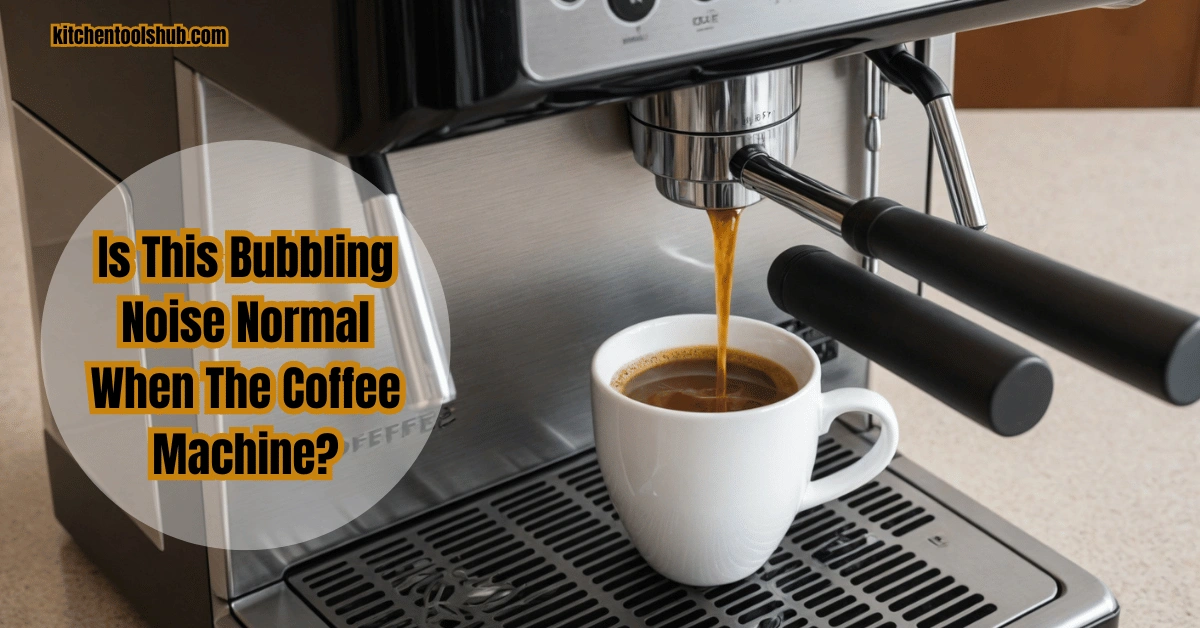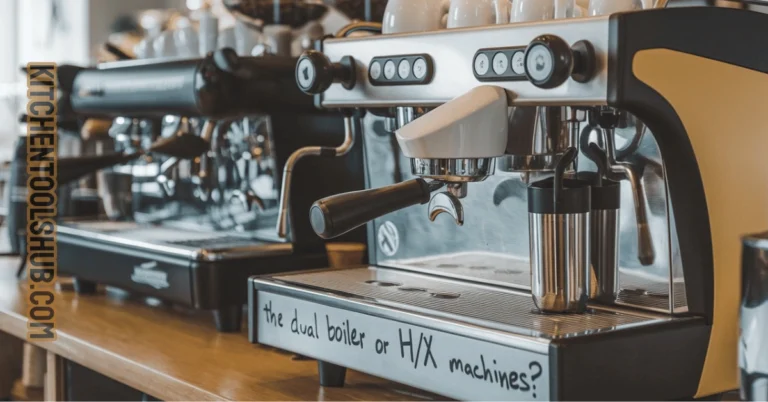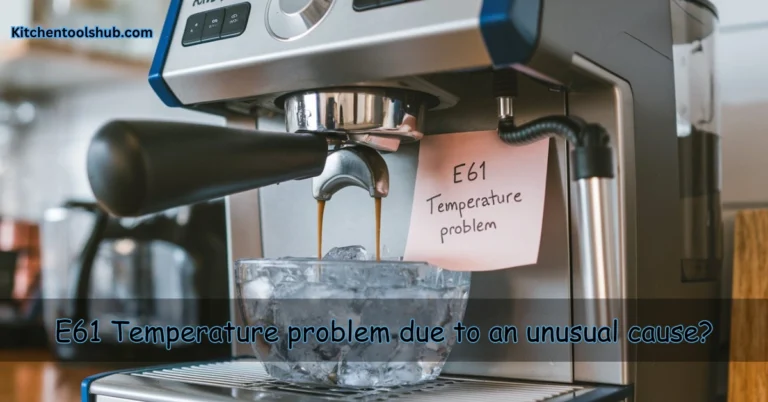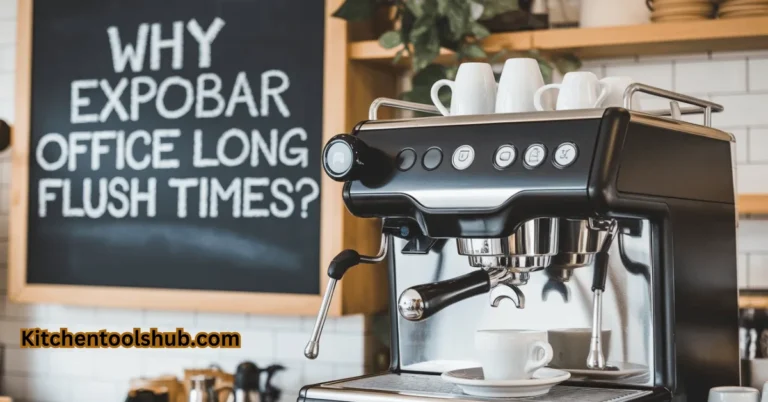Is This Bubbling Noise Normal When The Coffee Machine?(Fixing Bubbling Sounds)
Is This Bubbling Noise Normal When The Coffee Machine? Coffee machines are crucial appliances in lots of households, supplying a every day dose of caffeine and luxury. Understanding the ordinary sounds and operations of your gadget is critical for preserving its overall performance and longevity. So, is that effervescent noise you listen a signal of hassle.
We’ll delve into the arena of coffee system effervescent noises. I’ll proportion my private reports and insights, along side professional reviews and helpful resources. We’ll discover common causes, capability solutions, and preventive measures to make sure your coffee gadget operates easily. From troubleshooting guidelines to protection recommendation, this manual pursuits to offer you with the data you need to experience your morning brew with out fear.
Short Answer:Is this bubbling noise normal when the coffee machine?
When your espresso gadget starts to brew, it’s common to hear a effervescent noise. This sound is generally resulting from the water being heated and forced through the coffee grounds underneath stress. In maximum instances, the bubbling noise is a sign that your espresso device is working efficiently, because it indicates the movement of water and air through the system. However, if the noise is strangely loud or accompanied with the aid of irregularities in brewing, it might be worth analyzing the machine for blockages or put on.
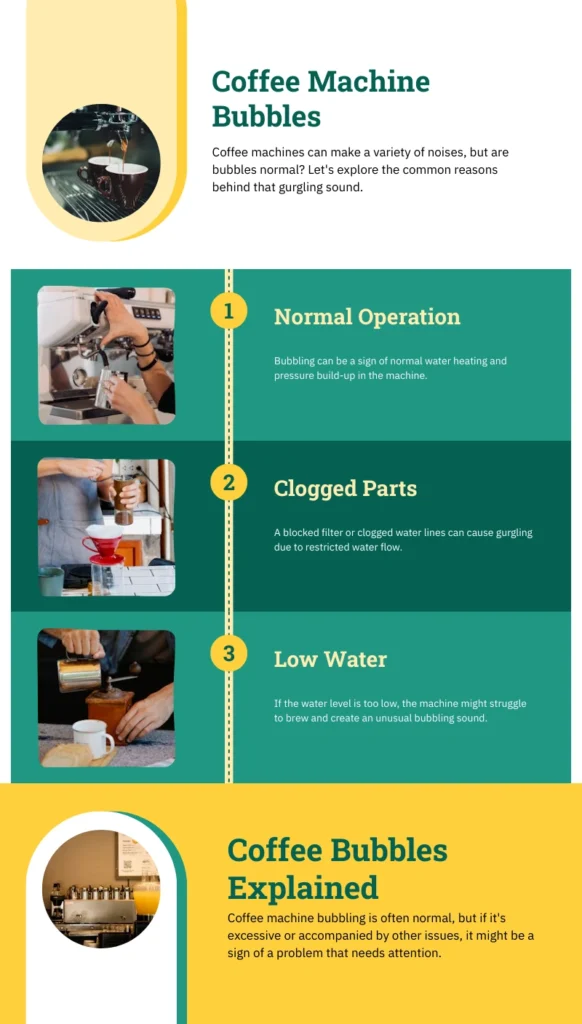
Common Causes Of Bubbling Noise In Coffee Machines?
Bubbling noises on your espresso gadget can often indicate underlying problems. Here are a few not unusual causes, followed with the aid of numerical records for a more informative information:
1.Water Level Issues:
Overfilled Water Reservoir: If the water reservoir is stuffed past the most line (usually round eighty-ninety% potential), extra water can reason bubbling as it heats up and expands.
Low Water Level: A water degree beneath the minimum line (usually 20-30% capacity) can lead to uneven heating and effervescent.
2.Pump Problems:
Faulty Pump: A malfunctioning pump can create unusual noises, together with bubbling. This can arise if the pump is wiped out (after 3-5 years of regular use) or has turn out to be broken due to clogs, mineral deposits, or electrical faults.
Air Bubbles: Air trapped in the pump or water lines can purpose effervescent. This can occur if the system isn’t always leveled properly or if there are leaks inside the water supply.
3.Clogged Filter or Group Head:
Buildup: Over time, coffee grounds, oils, and minerals can build up on the filter or group head. When the buildup reaches a sure factor (around 1-2 months of normal use without cleaning), it is able to restriction water flow and motive effervescent.
Mineral Deposits: Hard water can depart mineral deposits which could clog the clear out or organization head. These deposits can occur more often in regions with excessive mineral content inside the water deliver.
4.Heating Element Issues:
Faulty Heating Element: A malfunctioning heating detail can create choppy heating and bubbling. This may be due to wear and tear (after five-7 years of regular use) or electric powered faults.
Short Circuit: A brief circuit in the heating detail can cause ordinary noises and potential protection hazards. This can arise if the heating detail is damaged or if there’s a hassle with the electrical wiring.
By expertise those not unusual reasons and addressing them directly, you can help maintain the superior performance of your espresso gadget and save you in addition damage.
Personal Experience:
I as soon as observed a effervescent noise coming from my espresso system. At first, I turned into worried it is probably a signal of a critical trouble. However, after doing a little studies and consulting with a friend who is a espresso enthusiast, I learned that it became a regular sound throughout the brewing technique. It became out to be because of the water heating up and getting into contact with the coffee grounds.
Expert Opinions:
According to espresso machine specialists, effervescent noises are regularly a normal occurrence. They may be as a result of various factors, which include the water heating up, the pump operating, or the espresso grounds freeing gases during the brewing procedure. However, if the effervescent noise is accompanied by different unusual sounds or symptoms, it might be a signal of an underlying issue that requires attention.
How Fix Bubbling Coffee Machine?
Troubleshooting Bubbling Noise in Your Coffee Machine
Bubbling noises in your coffee system may be a signal of diverse issues. Here are some steps to troubleshoot and attach the hassle:
- Check Water Levels:
Ensure the water reservoir is filled to an appropriate degree. Refer in your machine’s manual for specific suggestions.
Avoid overfilling or underfilling. Too plenty or too little water can cause effervescent.
- Inspect the Pump:
Listen for unusual noises. A faulty pump would possibly produce grinding or clicking sounds.
Check for clogs. Remove the pump and look into it for any obstructions.
If important, seek advice from a technician for maintenance or replacements.
- Clean the Filter and Group Head:
Remove and smooth the clear out in step with the manufacturer’s commands.
Descale the institution head to cast off mineral deposits which can purpose clogging. Use a descaling solution in particular designed for coffee machines.
- Check the Heating Element:
Inspect for damage or discoloration. A defective heating element may need to get replaced.
Consult a technician for expert prognosis and restore.
- Consider Professional Assistance:
If you’re not able to remedy the difficulty yourself, consult a qualified technician. They can diagnose the hassle and provide appropriate solutions.
| Cause | Symptoms | Solutions |
|---|---|---|
| Water Level Issues | Excessive or insufficient water levels | Adjust water level to recommended range. |
| Pump Problems | Unusual noises, vibrations, or leaks | Inspect and clean pump; consider replacement if necessary. |
| Clogged Filter or Group Head | Restricted water flow, uneven brewing | Clean and descale filter and group head regularly. |
| Heating Element Issues | Unusual noises, burning smell, sparks | Inspect heating element; consider replacement if necessary. |
Are Coffee Makers Supposed to Make Noise?
Yes, coffee makers are designed to supply sure noises at some stage in the brewing method. These noises are normally normal and expected. However, immoderate or uncommon noises can indicate underlying issues.
1. Grinding Noise:
Normal: A constant, low-frequency grinding sound is anticipated while the espresso beans are being ground.
Excessive: If the grinding noise is surprisingly loud, it could be a sign of a tired grinder or overseas objects in the grinder.
2. Heating Noise:
Normal: A humming or humming sound is common because the heating detail heats up the water.
Excessive: If the heating noise is observed with the aid of a burning odor or sparks, it can imply a hassle with the heating element.
3. Pumping Noise:
Normal: A steady pumping sound is anticipated as water moves thru the machine.
Excessive: If the pumping noise is located via uncommon vibrations or leaks, it could suggest a faulty pump or a clogged clear out.
4. Bubbling Noise:
Normal: Some bubbling sounds are ordinary during the brewing method, in particular as the hot water comes into touch with the espresso grounds.
Excessive: Excessive bubbling may want to indicate problems with water degrees, the pump, or the heating detail.
Why Does Pot Gurgle Early Most Of The Time?
There are some common reasons why a pot might gurgle early:
Heat: If the heat source is just too excessive, the water can boil too quick, inflicting the pot to gurgle early.
Seal: A terrible seal among the pot and the lid can permit steam to escape, which can also motive early gurgling.
Grind size: If the coffee grounds are too high-quality, they can clog the filter out and limit water drift, main to early gurgling.
Water degree: If the water stage is too low, the pot can heat up too fast and begin gurgling.
Helpful Resources for “Is This Bubbling Noise Normal When the Coffee Machine?”
Websites:
- Coffee Machine Guru: A comprehensive resource for coffee machine troubleshooting and maintenance.
- Espresso Coffee School: Provides in-depth information on espresso machines and their common issues.
- Coffee Forums: Online forums like CoffeeGeek and Home Barista often have discussions about coffee machine problems and solutions.
Books:
- “The Home Barista” by Tony DiNapoli: A popular guide for home coffee enthusiasts, covering various aspects of coffee brewing and maintenance.
- “Espresso: The Science of Coffee Making” by Christopher Hendon: A more technical approach to coffee making, exploring the science behind the brewing process.
Documents:
- Coffee Machine Manuals: Consult the user manual for your specific coffee machine model for troubleshooting tips and maintenance guidelines.
- Manufacturer Websites: Many coffee machine manufacturers provide online resources, including troubleshooting guides and FAQs.
Forums:
- CoffeeGeek: A large online community dedicated to coffee and espresso.
- Home Barista: Another popular forum with discussions on various coffee-related topics.
By exploring these resources, you can find valuable information and advice to help you troubleshoot bubbling noise in your coffee machine.
Hissing / Boiling Noise Linea Micra Normal?
Yes, it is everyday for a Linea Micra coffee device to make hissing and boiling noises. These sounds are commonplace all through the brewing procedure because the water heats up and springs into contact with the coffee grounds.
If you are worried about the noise degree or the sound satisfactory, right here are a few things to recall:
- Water hardness: Hard water can make a contribution to improved noise. Consider the use of a water filter or softener.
- Descaling: Regular descaling allows save you mineral buildup, which could affect the device’s overall performance and noise degrees.
- Maintenance: Ensure that the gadget is properly maintained, along with cleansing the institution head and filter out regularly.
Conclusion:
A effervescent noise at some point of the operation of a coffee system is often ordinary and predicted. It may be resulting from the heating detail, steam production, or the motion of water within the device. However, if the noise turns into excessive, uncommon, or followed by different problems like leaks or bad overall performance, it’s advocated to consult the gadget’s manual or contact a qualified technician for troubleshooting.
1. What is the cause of the bubbling noise in my coffee machine?
The bubbling noise in your coffee machine is often caused by the boiling water or steam within the machine. It’s a normal sound and indicates that the machine is heating up and preparing to brew coffee.
2. Is the bubbling noise a sign of a problem with my coffee machine?
If the bubbling noise is accompanied by other unusual symptoms, such as leaks, strange smells, or inconsistent brewing, it could be a sign of an underlying issue. However, in most cases, the bubbling noise is perfectly normal.
3. When should I be concerned about the bubbling noise in my coffee machine?
If the bubbling noise is accompanied by any of the following symptoms, you should be concerned:
Leaks: Water leaking from the machine can indicate a damaged gasket or seal.
Strange smells: Unusual odors, such as burning or smoke, could be a sign of a problem.
Inconsistent brewing: If your coffee tastes different or the brew time is inconsistent, it might be due to a malfunction.
4. How can I reduce the bubbling noise in my coffee machine?
While it’s difficult to completely eliminate the bubbling noise, you can minimize it by:
Descaling regularly: Mineral buildup can contribute to excessive bubbling.
Checking the water pressure: Ensure that the water pressure is adequate to prevent excessive boiling.
Avoiding overfilling the water reservoir: Overfilling can lead to excessive boiling and bubbling.
5. When should I call a technician for the bubbling noise in my coffee machine?
If the bubbling noise is accompanied by any of the symptoms mentioned above, or if you’re unsure about the cause, it’s best to consult a qualified technician. They can diagnose the problem and provide appropriate solutions.
